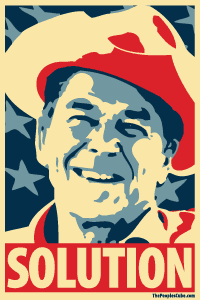The Left: Where Greed Meets Envy
By David P. McGinley | June 17, 2012 | American Thinker
In ascertaining the general hierarchy of sins, a good point of reference is the Ten Commandments. While the Decalogue is not all-inclusive, God dictated these specific directives to Moses as the basis upon which His people should live. Among the ten is the command not to covet: “You shall not covet … anything that belongs to your neighbor” (Ex. 20:17 [NIV]).
Covetousness (or envy), meaning the possession of a strong desire for what another has, does not get the attention that its close relation “greed” gets. Greed, of course, is greatly derided in scripture, and for good reason, but God did not see fit to include it in the commandments He set out on Mt. Sinai. Why?
For one thing, greed is not always destructive, while envy is. Greed is the desire to have more and, depending how that desire is acted upon, can be beneficial or detrimental. The profit motive has made the United States the most prosperous nation in history; but, conversely, the abuse of that motive was greatly responsible for the September 2008 financial collapse. When envy, on the other hand, is acted upon, there is no good, only bad. At its worst, it leads to mass theft and murder.




 Let’s cut to the quick. I am sick and tired of hearing people get excited over the Republican presidential debates that seem to take place every other day. For the most part, they are a pathetic joke because they only perpetuate the usurpation of power. The general election debates in 2012 will be more of the same.
Let’s cut to the quick. I am sick and tired of hearing people get excited over the Republican presidential debates that seem to take place every other day. For the most part, they are a pathetic joke because they only perpetuate the usurpation of power. The general election debates in 2012 will be more of the same.











